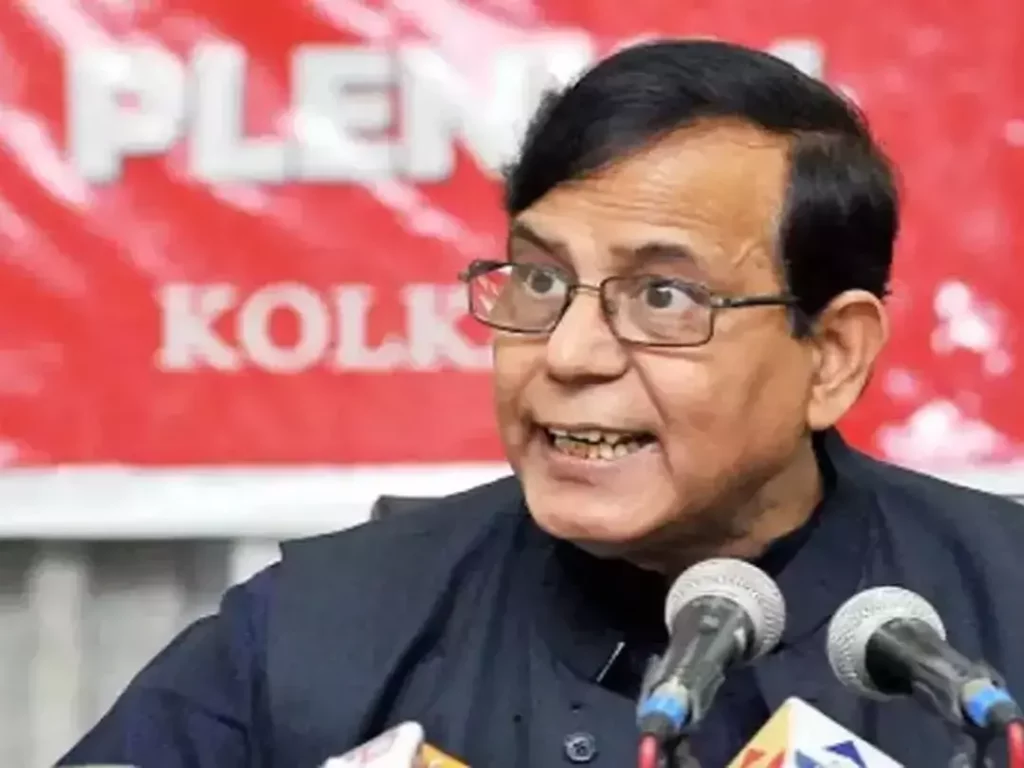
How is infiltration happening after Art 370’s removal?: CPI(M)
The recent Pahalgam terror attack in Jammu and Kashmir has sent shockwaves across the country, raising questions about the effectiveness of the government’s measures to ensure national security. The attack has also sparked a heated debate about the impact of the abrogation of Article 370, which was a key provision of the Constitution that granted special status to J&K.
CPI(M) West Bengal Secretary, Md Salim, has strongly criticized the BJP government over the Pahalgam attack, questioning how infiltration is still happening in J&K despite the removal of Article 370. In a statement, Salim expressed distress over the attack and asked what the government is doing to ensure the security of the border.
The Pahalgam attack, which occurred on October 8, 2022, resulted in the deaths of three civilians and injured several others. The attack was carried out by terrorists from Pakistan, who infiltrated into Indian territory from across the Line of Control (LoC).
The CPI(M) leader’s statement comes amidst growing concerns about the efficacy of the government’s measures to prevent infiltration and terrorism in J&K. The abrogation of Article 370, which was a key electoral promise of the BJP, was meant to integrate J&K with the rest of the country and prevent terrorism. However, the Pahalgam attack has raised questions about whether the government’s actions have been effective in achieving these goals.
Salim’s statement is not the first time that the CPI(M) has questioned the government’s handling of the situation in J&K. The party has consistently argued that the government’s policies have been ineffective in addressing the root causes of terrorism in the region, and that the abrogation of Article 370 has only made things worse.
In his statement, Salim asked how infiltration was still happening in J&K despite the removal of Article 370. He pointed out that the government had claimed that the abrogation of Article 370 would solve the problems of J&K, but the Pahalgam attack has shown that this is not the case.
“We had said that the abrogation of Article 370 would not solve the problems of J&K, and now we are seeing the results,” Salim said. “The government is claiming that infiltration is decreasing, but the Pahalgam attack has shown that this is not true. The government is not doing enough to prevent infiltration and terrorism in J&K.”
Salim’s statement is backed by the facts on the ground. According to official figures, there has been a significant increase in infiltration attempts by terrorists from Pakistan since the abrogation of Article 370. In 2020, there were over 500 infiltration attempts, which declined to around 300 in 2021. However, in 2022, the number of infiltration attempts has risen to over 400.
The CPI(M) leader’s statement has also been criticized by some who argue that the party is being disingenuous in its criticism of the government. They point out that the CPI(M) has historically been critical of the government’s handling of the situation in J&K, and that the party’s criticism of the abrogation of Article 370 is part of a broader political agenda.
However, Salim’s statement is not without merit. The Pahalgam attack has highlighted the continuing threat posed by terrorism in J&K, and has raised questions about the government’s ability to prevent infiltration and ensure national security.
In conclusion, the Pahalgam terror attack has sent a stark message about the continuing threat posed by terrorism in J&K, and has raised questions about the effectiveness of the government’s measures to prevent infiltration and ensure national security. The CPI(M) leader’s statement has highlighted the need for the government to take a more comprehensive approach to addressing the root causes of terrorism in the region, and to ensure that the border is properly secured to prevent infiltration.






